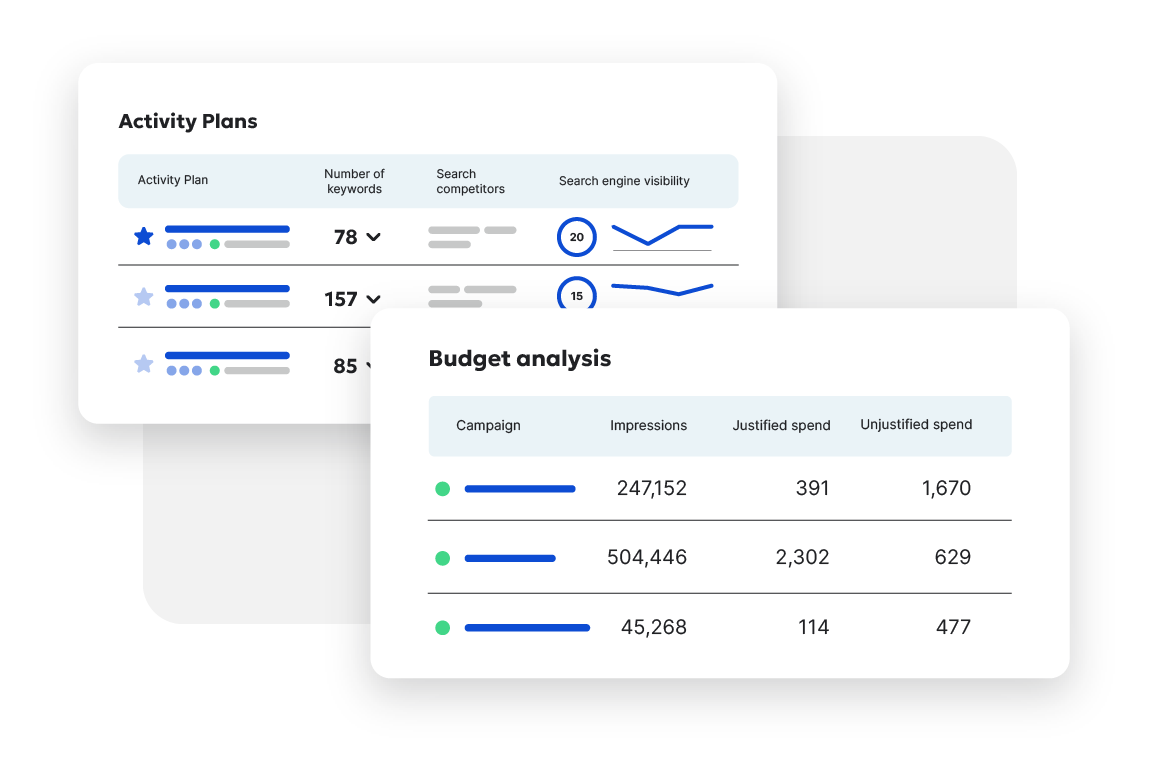It’s common for companies of all sizes to rely on SEO agencies to stay on top of their search game, particularly as AI is causing seismic shifts in just about everything connected to search. It often takes a host of professionals with different expertise and fluency in different data sets to pull off a comprehensive SEO plan — one that keeps you ahead of your competitors and drives conversions. Agencies fill the gaps, particularly if your organization relies on a one-person SEO team to get the job done.
If you rely on an SEO agency, to make the most of the relationship, it’s worth committing to certain best practices that ensure there are guardrails in place — and committing to tools that make collaboration and information sharing among internal and external stakeholders easy.
Here’s what you need to do to pull it off.
#1: Confirm how you will work with your SEO agency
The details on how you work with an agency will range based on the situation, but overall, there are two common structures for collaboration on planning and executing SEO:
Option 1: The SEO agency creates a strategy for your company to execute
With this approach, your SEO agency develops your activity plans, conducts keyword research, creates target pages for keywords, and makes recommendations for those pages. Those recommendations might range from changing the language or design of particular pages to adjusting the codebase across your site to improve user experience. Armed with those recommendations, your internal team then makes the necessary changes.
This plan works best for an internal team that has little experience with SEO but does have enough resources to tackle the recommendations sent from your agency.
Option 2: The SEO agency executes the SEO strategy you create
This option flips the work responsibilities: Your internal team creates the SEO strategy, and the agency executes the tasks in the back end of your website.
This plan is for teams that have the knowledge and skills to create an SEO strategy and plan, but don't have the resources to implement all the changes needed. Your team needs to conduct your own keyword research and analyze the data to adjust the SEO strategy as needed.
#2: Designate a single point of contact
It’s best to have a single point of contact between your company and your SEO agency. It makes sense that that person be your internal SEO expert. Task them with discussing strategy with your agency and implementing changes recommended by the agency.
Keep in mind that your internal SEO expert likely collaborates closely with your WebOps, marketing, and content teams, so they’re going to be in the best position to understand how all the pieces fit together and how the SEO agency’s guidance should be implemented.
#2: Own your data
There’s no shortage of horror stories about companies that worked with an agency that created and worked from the agency’s own analytics and research accounts. Once the company stopped working with the agency, the company’s data and analytics were inaccessible since the agency owned the accounts. For a marketing team, that’s one of the worst things that can ever happen.
Choose your own tool and own access to it. It’s perfectly OK for the agency to have input if you haven’t selected one yet, but make sure you have the keys.
Our SEO and Performance tools serve this purpose well: You’ve got powerful analytics in place, and your agency can access it, but it’s owned by you. (Same thing with Siteimprove Analytics, which offers tools that are wider in scope.)
Share access to it with your agency, so if you decide to stop working with them, then you’re not stuck without your own data.
#3: Use automatic checkers and scores as your shared benchmarks
Having a transparent point of reference and shared tools, that both the internal team and the agency rely on, is critical.
Our SEO Score Checker measures how your site is performing, based on four subcategories:
Technical score (high weight): This subcategory includes indexability, server response, friendly URLs, and technical quality (e.g., HTML or CSS validation issues or anything that might mark the domain as “unsafe”).
Content score (medium weight): This covers on-page SEO and the quality of the content itself, i.e., is it relevant, up-to-date, easy to scan and read, is there meta data, and is the content unique.
Mobile optimizations score (medium weight): Speed, responsiveness, and touchscreen readiness are all calculated into this sub-category.
User experience SEO score (low weight): Here, the checker rates how well the content on your site is organized (navigation) and how quickly images load.
Together with the detailed results from the checker, each issue will have a designated difficulty level: easy (things like spelling error and broken links), moderate (e.g., tweaking scripts), moderately difficult (requires knowledge of HTML, JavaScript, etc.), and difficult (you need the big guns).
#4 Make use of activity plans
Every team should have a shared checklist to keep everyone accountable and on track. Within our tool SEO Advanced, which ensures your keyword tracking, on-page recommendations, and technical fixes are all part of one centralized workflow, there’s a feature called Activity Plans. It’s an ideal tool in any circumstance, even if you’ve got just one SEO person on your team, but with agencies, it’s a must-have: You can track progress and assign tasks directly within the platform, streamlining the entire workflow from research to execution.
With transparent activity plans in place, you can easily shift between working with an agency or relying solely on in-house expertise, without losing the thread on what needs to be done and what takes priority.
#5 Rely on a single source of truth
SEO is a data-heavy practice, and if you’re relying on different tools, chances are your data is displayed differently, you’re toggling back and forth between different windows and even platforms constantly, and wrangling your data is incredibly cumbersome (if not impossible). Add an agency into the mix and it can be even more frustrating.
The best approach is to use one comprehensive tool where you can manage all your analytics and get insights that are clear to both you and your agency.
Siteimprove’s SEO and Performance tools do just that: In one place, you can get a clear, comprehensive view of your site’s performance, track keyword rankings and backlinks, and see just where you can make quick SEO improvements. Its Keyword Discovery feature gives you a view into the keywords that are already ranking, and you can sort the most appropriate keywords and add them to your Activity Plan. Then there’s the Technical SEO module, which helps you improve your site’s visibility and ranking.
When all of this information is in one place, it’s far easier to collaborate because you’re all looking at the same data in a familiar format, which is of course key to working toward the same KPIs.
#6 Tap additional tools that help you keep your eyes on the big picture
SEO doesn’t exist in a vacuum. Your website is a piece of your overall company, and your website is just one piece of the internet. Looking only at yourself and your keywords will leave a lot of opportunities on the table.
Make sure your SEO strategies work in tandem with your other marketing practices. Siteimprove’s cross-channel campaign management tools (including our our pay-per-click ad management tool) is a great example. Understanding how PPC drives traffic while optimizing your organic search terms ensures you’re maximizing visibility across all channels.
Then there’s Prepublish, a Siteimprove optimization tool that does on-page SEO diagnostics, before you even hit ‘publish.’ Both you and your agency can use Prepublish to run checks that confirm that the SEO strategies you’ve aligned on are reflected in your content.
In the end, effective management of an SEO agency is only as good as the tools that you use: If you’re not using the same tools and working with the same data (your data), it’s next to impossible to align and collaborate.
An added bonus? If you and your SEO agency use the same tools, it’s far easier to verify that they’re doing what they’re supposed to be doing. Shared tools cultivate accountability.

Ready to improve your Search Engine Optimization?
Siteimprove SEO is an all-in-one Enterprise SEO tool that can help you achieve your digital potential.
Schedule a demo
